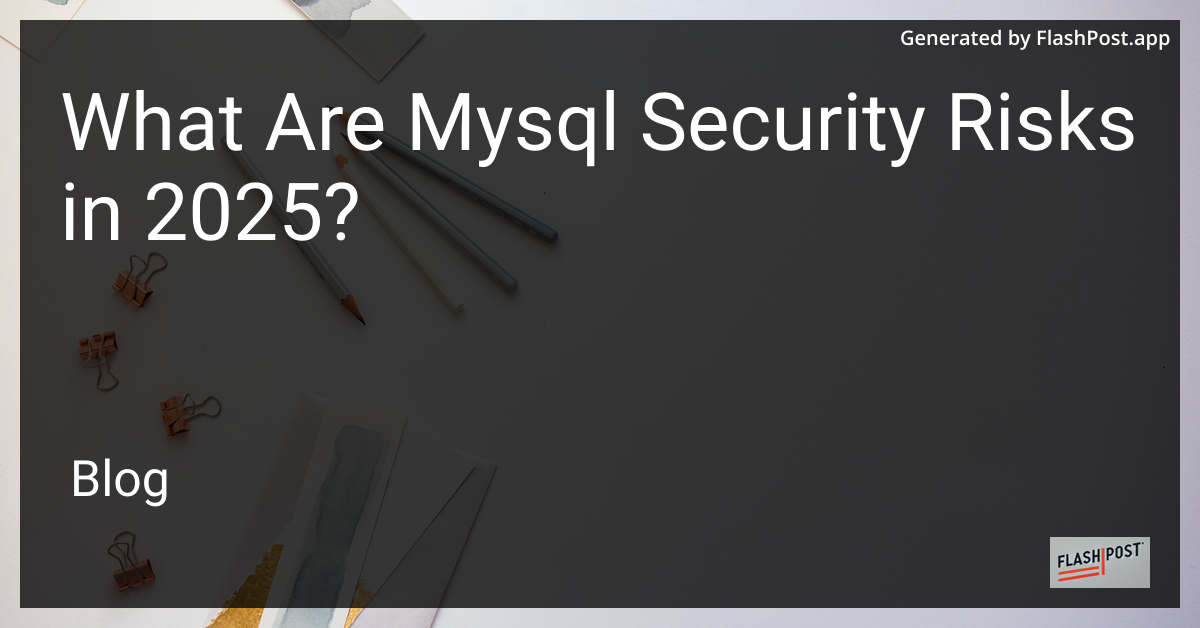
MySQL Security Risks in 2025: What You Need to Know
As technology continues to evolve, so do the threats to database security. MySQL, one of the most popular open-source database management systems, is not immune to these threats. Understanding the MySQL security risks in 2025 is crucial for maintaining the integrity, confidentiality, and availability of your data.
Best MySQL Books to Buy in 2025
| Product | Features | Price |
|---|---|---|
 MySQL Crash Course: A Hands-on Introduction to Database Development |
Explore Now  |
|
 Murach’s MySQL (4th Edition) Professional SQL Book & Reference Guide with Cheat Sheets - Complete Database Development Training for Retrieving, Updating & Managing Data with AWS Integration |
Explore Now  |
|
 PHP & MySQL: Server-side Web Development |
Explore Now  |
|
 Learning MySQL: Get a Handle on Your Data |
Explore Now  |
|
 Efficient MySQL Performance: Best Practices and Techniques |
Explore Now  |
Emerging Threats to MySQL Security
In 2025, some of the key security risks that MySQL database administrators and developers need to be aware of include:
1. SQL Injection Attacks
SQL injection remains one of the most insidious threats to MySQL databases. Attackers exploit vulnerabilities in web applications to execute arbitrary SQL code. This can lead to unauthorized data access, theft, or even complete system compromise. It's essential to use parameterized queries and stored procedures to mitigate this risk. For those managing multiple tables, understanding complex MySQL joins is also crucial to prevent injection points.
2. Weak Authentication Mechanisms
Secure authentication is vital for preventing unauthorized database access. In 2025, utilizing multi-factor authentication (MFA) and regularly updating passwords is advised. Monitor checking MySQL schema updates regularly to ensure no unauthorized changes are made.
3. Outdated Software
Running outdated versions of MySQL can expose databases to known vulnerabilities. Always stay updated with the latest patches and versions. Automatic patch management tools can assist in ensuring your MySQL version isn't a security liability.
4. Unauthorized Privilege Escalation
Over-privileged database accounts can lead to serious security breaches. It's critical to implement the principle of least privilege, allowing accounts to have only the permissions necessary for their tasks. This includes regularly auditing permissions and roles.
Conclusion
Being proactive in understanding and addressing MySQL security risks is crucial in 2025. By applying these best practices and staying informed about emerging threats, businesses can protect their data assets effectively. Additionally, learning how to modify databases in MySQL securely will continue to be an essential skill for developers worldwide.
Remember, in the world of databases, security is not an option—it's a necessity. By staying informed and implementing robust security measures, you can ensure that your MySQL databases remain safe in 2025 and beyond.